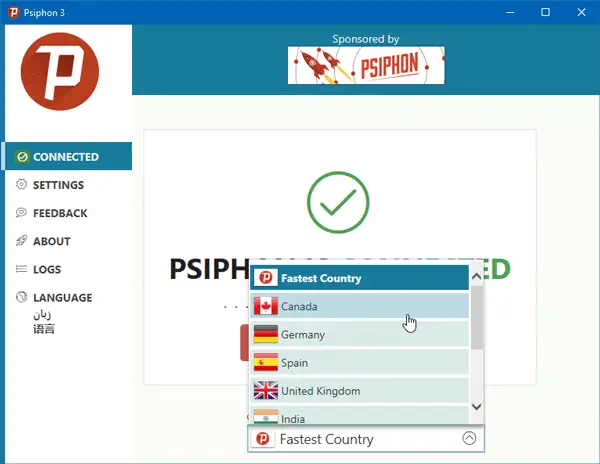

Psiphon’s proxies use SSH, SSH+ (obfuscated), and HTTP configurations. It’s fairly secure when used in combination with AES 256-bit encryption, but it’s needlessly weaker than the competition. Psiphon VPN operates exclusively on L2TP/IPSec rather than our preferred protocol OpenVPN. Psiphon specifically states that it will not give detailed or ‘potentially user-identifying information’ to partners or any other third parties, but we still don’t recommend it for those seeking high levels of privacy. The logs are used mainly for troubleshooting purposes and to ‘determine the nature of major censorship events’, where sites and services can be suddenly blocked without warning.

These are further aggregated by date, sponsor and region.Īll of the data Psiphon collects is discarded after “at most” 90 days, which is a little longer than we’d like. Psiphon is supported by ads, and it does share statistics with sponsors so they can see, for example, how often their sites are visited through Psiphon and from which countries. Psiphon admits to inspecting domain names (websites) users visit while connected, but not full URLs. This is defined as your country and city which are obtained through your IP address, but Psiphon claims to discard this information immediately.Total bytes transferred and bytes transferred for some specific domains.Psiphon collects the following information: Psiphon collects detailed connection logs but this is explained in great detail in its extensive privacy policy. Psiphon used to state at the top of its privacy policy that it “does not increase your online privacy, and should not be considered or used as an online security tool.” Thankfully, they have removed this, but its actual policy remains dreadful.


 0 kommentar(er)
0 kommentar(er)
